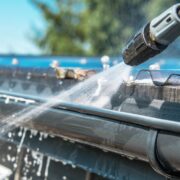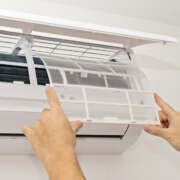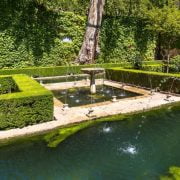Not a lot of individuals know that mineral-rich water is one of the reasons why they need to clean their properties more frequently. For example, magnesium and calcium ions from hard water can cause ceramic tiles in washrooms to lose their sparkle rapidly.
Additionally, it leaves residue on bathtubs, sinks, appliances, and pipes due to limescale accumulation. Regardless of the different kinds of cleaning products one employs, staining from hard water is tricky to eradicate. Now, this is where water softeners become of the utmost essence.
A water softener can help extend the life of your plumbing systems and appliances, promote healthy skin, and make cleaning hassle-free, among other benefits. A reputable plumber in your area can install one in your home. Moreover, knowing the average cost for water softener installation is a must so you can prepare financially and choose an installer that offers value for your hard-earned money.
These are some of the reasons why you should get a water softener for your home:
Keeps laundry and dishes in pristine condition
Garments washed using hard water can easily look worn out and dull as colors fade and whites turn grey. Glassware and plates can suffer the same fate. As someone who wants things to look good as new at all times, this is the last thing you want to happen.
The good news is that soft water has the ability to preserve the visual appeal of clothes and tableware. A water softener can eliminate the presence of minerals in the water. This is all due to soft water’s capacity to combine with laundry detergent and soap efficiently, allowing for cleaner surfaces. In addition, you won’t have to drown your clothes in enormous amounts of fabric conditioner, as a water softener can help keep your garments soft.
Skin-Friendly
Excessively mineralized water contains magnesium and calcium ions, which can dry out the outermost layer of the skin. Also, when using hard water, you’ll need larger quantities of soap and laundry detergent to produce sufficient foam for a thorough wash, which can aggravate dermatitis and other skin conditions.
In addition, the combination of detergent and the trace elements in hard water, a substance called soap scum, can also develop. This is another possible allergen that can cause irritation when it comes into contact with the skin or when tiny fragments are left on garments that have been laundered using hard water.
A water softener, among other methods, can help address such issues. As mentioned earlier, it rids water of minerals, making it gentle on the skin and lowering the chances of skin irritations. Moreover, treated or soft water can be easily absorbed by the skin, which promotes hydration.
Enhances the heating and plumbing systems’ lifespan and efficiency

Mineral-rich water may cause mayhem on the plumbing and water heating systems because of limescale and soap scum buildup.
Limescale ultimately serves as an additional layer of insulating material, preventing the heat from being transferred into the water, and lowering the water heater’s effectiveness, often by as much as 60%. Meanwhile, high concentrations of minerals in the water can result in corrosion inside the pipes, eventually resulting in rust, breakage, and water leaks.
You don’t have to worry about these issues when you have a water softener installed in your home. It’ll prevent the said buildups, ensuring that your pipes and heating system work as efficiently as they should.
Reduces costs
Water softeners also offer cost-saving benefits. Water with low mineral content ensures that pipes operate for a more extended period without suffering from irreparable damage.
Also, it allows water-reliant equipment to utilize fewer resources to function optimally. This means you’ll be safe from premature and unnecessary repairs and replacements. In addition, it’s far more efficient using soft water for cleaning because it means using smaller quantities of cleaning products to get the job done. As a result, you won’t have to purchase them frequently.
Eradicates undesirable flavors from drinking water
Although minerals in hard water make it ideal for drinking, soft water is typically considered more delicious, primarily because of its neutral flavor.
Due to excess mineral content, some homes have to cope with drinking water that leaves an undesirable flavor in the mouth or makes gums more susceptible to irritation. On the one hand, the absence of minerals like iron, sulfur, and magnesium in soft water allows for more pleasant drinking, cooking, and dining experiences.
Conclusion
A water softener has numerous benefits to homeowners, especially those living in regions where the water’s mineral content is exceptionally high. High amounts of magnesium and calcium ions are present in mineral-rich water, which can cause limescale buildup, harm your home’s heating and plumbing systems, and reduce the efficacy of cleaning products. Families using water softeners can save a significant amount of money annually because soft water doesn’t contain the said impurities.














Comments